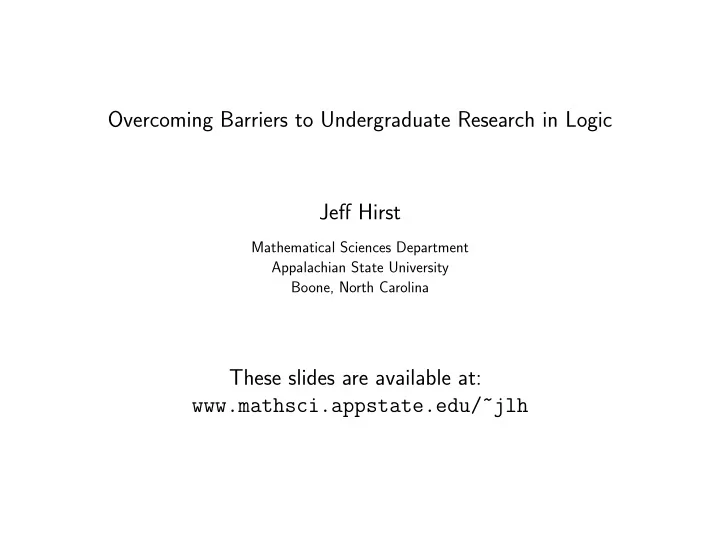

Overcoming Barriers to Undergraduate Research in Logic Jeff Hirst Mathematical Sciences Department Appalachian State University Boone, North Carolina These slides are available at: www.mathsci.appstate.edu/~jlh
Daunting prospects for undergraduates How can I choose a topic? How do I find sources? You mean there are sources other than Wikipedia ? How can I ever type this up?
Overcoming mundane barriers Create a T EX page
Do a MathSciNet demonstration
Trolling for researchers Bridge courses Usually include at least some propositional calculus Special topics One time courses on math logic topics Set theory, computability, fuzzy logic, etc. These courses could include a short “research assignment.” An alternative: a one credit hour undergrad colloquium.
Topics for projects Bridge courses: | and ↓ are complete connectives in classical propo- sitional calculus. What binary connectives of � Lukasiewicz logic are complete? Find all minimal complete sets of binary connec- tives in � Lukasiewicz logic. Repeat with Kleene strong 3-valued logic. What about four valued logics? What about tri-nary connectives?
Topics for projects From a computability course: Instances of Church’s thesis Show that some graph rewriting scheme is Turing complete. Computable problems with no computable solution There is a computable infinite partial latin square problem that is solvable, but has no computable solution.
Topics for projects From a fuzzy logic course: Typically, what are the characteristics of t -norms used in applications? Design a fuzzy control system for carrying out “this task.” Describe all Archimedean t -norms with piece-wise linear generators. How are the non-differentiable points of the generating function mani- fested in the t -norm?
Recommend
More recommend